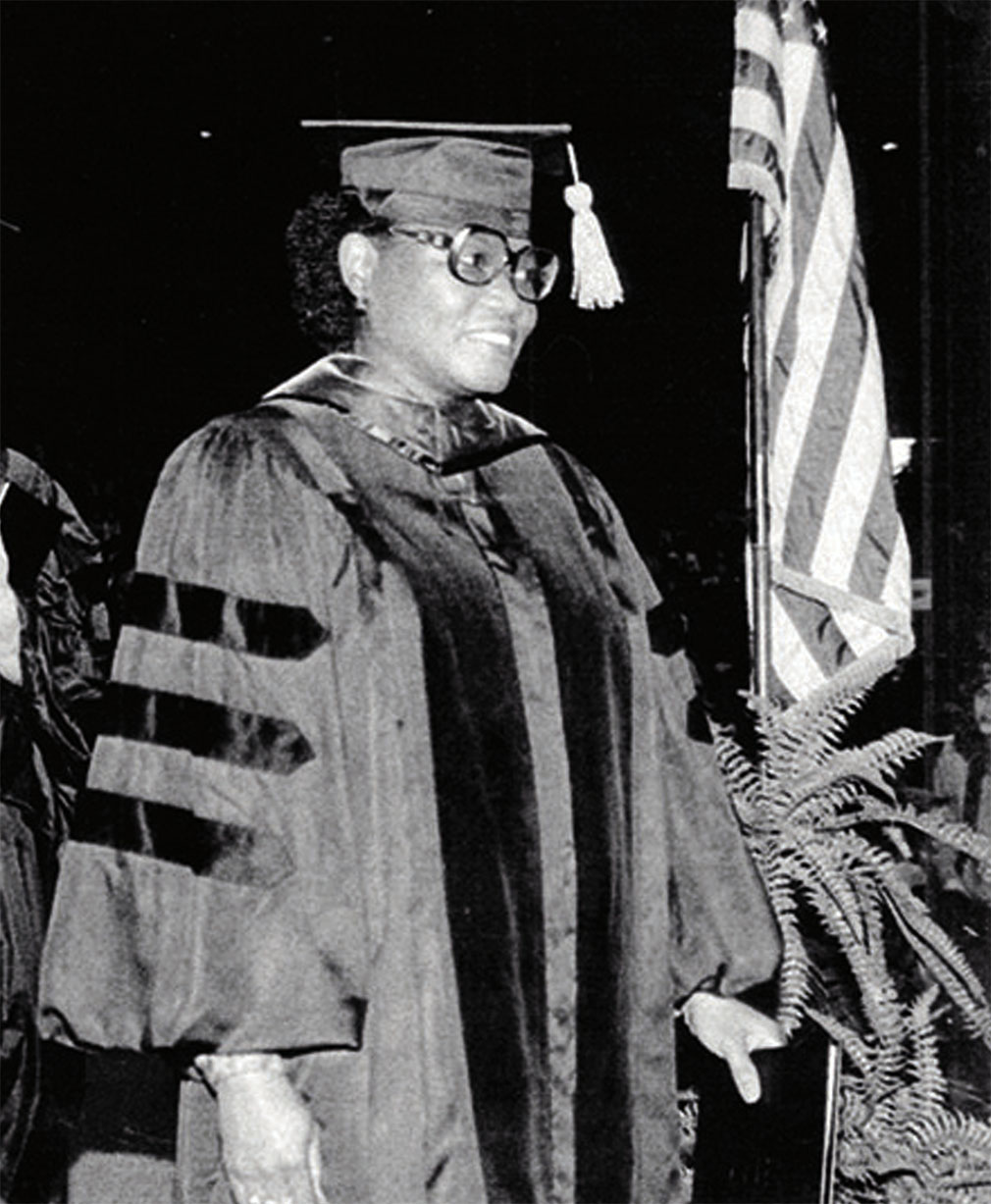
State’s first African American doctoral graduate.
Retirement doesn’t fit LaVerne L. Baker’s ’56/81 personality. “Many people my age are retiring,” she says, “but not me. I’m like that energizer bunny that just keeps going.”
Baker has spent more than four decades as a speech language pathologist, and now has begun a new communicative enterprise as a singer of Negro Spirituals.
Her interest in logopedics (communication sciences and disorders) began in the 1940s when a visitor to her Manhattan, Kan., high school speech class came to talk about the Institute of Logopedics at the University of Wichita.
Since nearby K-State didn’t have a program in logopedics, she headed to WU, where she excelled academically, was a majorette for the marching band and president of her sorority. After earning her bachelor’s degree, she worked at Winfield (Kan.) State Hospital and then earned a master’s degree in speech therapy from Purdue University, before going on to teach in Cincinnati and Palo Alto, Calif., schools.
Even with a master’s degree, however, Baker often found that her professional opinions were not given the weight she felt they deserved. She decided to go back to school for a doctorate. So she moved back to Kansas, which she considers home, and Wichita State.
From 1978-1981, while living on $400 a month, she worked under the guidance of CSD professor Kenneth W. Burk to earn her Ph.D. — which turned out to be a transformational experience. Not only was it an intellectually challenging time for her, it was also intensely spiritual. “There was a personal connection with a higher power,” she says. “During the process, something guided me through it all because I went way beyond what I thought my capabilities were.”

In May 1981, when she walked across the commencement stage, she had a deep sense of fulfillment, as well she should: She is the first African American to earn a doctorate at Wichita State. “I felt that even if I never did anything more in the world, at that point, I had done something just wonderful.” And, she believes, a Ph.D. sets an important example for people of color and women about furthering their own education. “It’s a very empowering degree,” she observes.
After graduation, Baker plunged back into the professional world. Her post-doctoral work experience features positions at the University of Southwestern Louisiana in Lafayette, at Xavier University in New Orleans and with Communication Competency Services in Manhattan.
For the past six years, she has been commuting from her home in Manhattan to nearby Junction City, where she is a speech language pathologist for the Geary County School District, handling a weekly caseload of 45 children. Baker has an affinity with youngsters, especially concerning how speech affects their lives, says a friend, Mary Caudle-Kidd. “She can pick up a speech impediment just like that, even if the parents may not hear it themselves,” reports Caudle-Kidd, who is also impressed by the way
Baker enjoys learning new things — including how to sing the Lord’s Prayer in five languages.
Baker’s newest learning endeavor is researching and performing Negro Spirituals. She took a voice course at WSU, she relates, but didn’t really begin singing in earnest until recently at her church. This May she staged a one-hour solo concert attended by a crowd of 300. “It was just wonderful.”
Singing, in fact, has lit such a spark in her that she has signed on for a two-week European tour, including a concert stop at the Salzburg Cathedral, with a Kansas-based musical group. The always-on-the-go Baker is planning another concert for the upcoming holiday season.
And she will, she says, continue singing “as long as I have a voice.”





